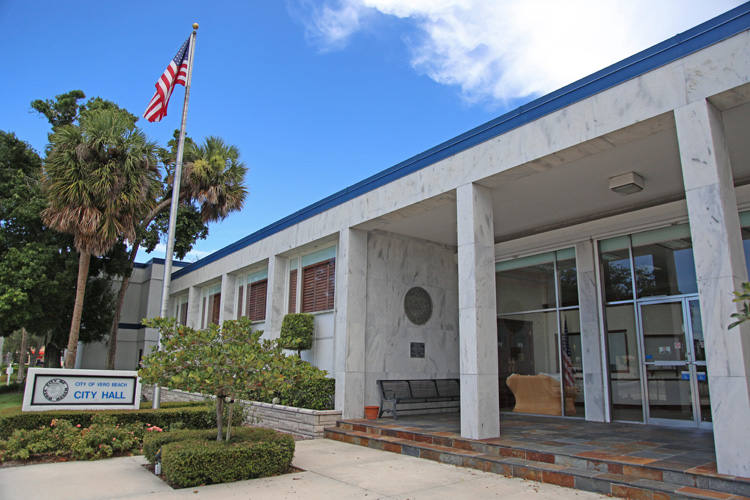
Mayor Val Zudans got little support from fellow council members last week when he proposed a policy that would ban the city from taking millions of dollars from so-called enterprise funds to bolster the city’s general operating fund.
For decades, Vero Beach has subsidized the property taxes that go into its general fund with cash siphoned off from its electric utility, water and sewer utility, and marina, taking in $5.4 million from the electric utility alone the final full year before Vero electric was sold to Florida Power and Light.
The electric revenue stream is now gone but the city still expects to skim $2.3 million from its water and sewer utility in the coming fiscal year, cash generated by the rates it charges residents for service in Vero Beach, Indian River Shores and unincorporated sections of the county. It also anticipates transferring about $190,000 from the city marina fund.
The ongoing fund transfers come in two parts. First the city siphons off a basic 6 percent of the revenue these funds collect. Then on top of that, the city charges for administrative and other costs related to running the enterprise operations.
Administrative costs for the electric utility in the last full budgeted year of operation were about $1.8 million. Anticipated transfers for the 2019-2020 budget year from the water and sewer fund and the marina are roughly $1.3 million and $92,000, respectively, according to city documents.
Zudans said the 6 percent water and sewer and marina transfers should stop, calling them hidden taxes. He suggested the money should instead be reinvested to improve and upgrade the city’s infrastructure.
Neglecting to reinvest in the marina has left the aging facility dilapidated and in need of a complete overhaul, and a recent Florida Department of Environmental Protection inspection of the city’s water system found leaks, corrosion, missing and faulty equipment, and described the drinking water supply as being in “pitiful condition.”
“I understand pipes break and things can happen, but I always wonder whether that’s because of maintenance money not going back into the sewer and the water system,” Zudans said. “The bottom line is if there was not a transfer to the general fund . . . from our utilities every year, either that money would be going back to infrastructure maintenance for water and sewer or the rates would be reduced.”
Councilman Harry Howle said he worries ceasing the transfers immediately could require a property tax increase, and suggested the discussion be held at some future date. Howle, like Zudans, is not seeking re-election and will leave the Council in November.
“I’m fiscally conservative. I agree with your point and I’m not going to debate it tonight,” Howle said. “If you eliminate that hidden tax, then you’ll have to raise taxes.”
A majority of the board agreed the idea of stopping fund transfers should be deferred since the general fund is still in a state of transition after the loss of the large electric utility subsidy. In addition, some council members said the 6-percent fee the city charges the funds is just a part of conducting municipal business.
The council recently voted to move the city’s wastewater treatment plant from its location on the shore of the Indian River Lagoon as soon as possible. At the same time, council directed staff to open a dialogue with Indian River County to see if the county is interested in taking over the city’s wastewater operation at an inland site.
Zudans argued that if the city keeps transferring money from the water and sewer utility to fatten its general operating fund, it makes it less likely city politicians and citizens will want to consolidate wastewater operations with the county – a move he supports because he believes it would save ratepayers’ money.
Zudans said, however, he does not object to the administrative costs the city charges the funds, just the basic 6-percent subsidy. “When the city attorney, city manager, human resources, or public works does work or spends time for an enterprise fund, it is appropriate for the enterprise fund to pay for those services,” Zudans said. “That is not the same as ‘profit’ transfers to the general fund.”



